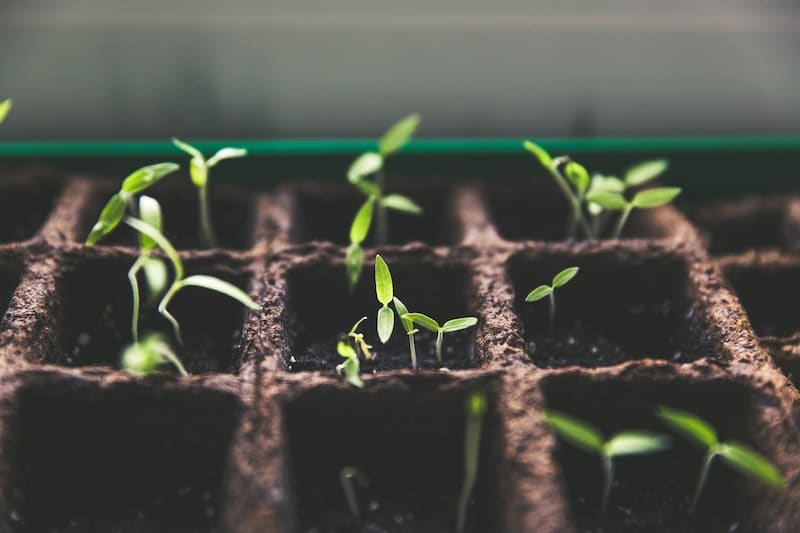Recently a friend admitted that she had a strange reaction to the coronavirus crisis:
“For the last few weeks, it seems I’ve taken most of my feelings: sadness, happiness, anxiety, excitement, and put them in a little box in the closet. I’ve told myself that when this crazy cruise ship docks I can have my big feelings again but for now I’ll just go into robot-caretaker mode. But it seems that, like Gilligan’s Island, this is no longer a three-hour cruise. The whole show is going to be about what happens on the island.”
It’s an apt metaphor. This is no longer a three-hour cruise. Even as regions of the world begin to reopen, things will be very different for a very long time. It is probably for the best that we didn’t know what we were getting into in March when we put away the book bags and thermoses. But here we are. We can’t box up our feelings until it’s safe to hug our neighbors again. We can’t fast-forward to the good part. We can’t close our eyes and hold our breath until this is over.
This is where we live, for now. The whole show is going to be about what happens on the island.
I am weary of the word “unprecedented.” Along with the phrase, “new normal,” it’s been used an unprecedented number of times this spring. This time is indeed unlike anything else we’ve experienced in our lifetimes. It feels—well, biblical.
As a liberal Christian minister, I don’t read scripture literally. I am particularly cautious about prying biblical texts from their original contexts and plunking them down in the midst of my own world. It rarely works. But these days I can’t help but read my Bible through the lens of the pandemic. The Bible is ripe for analogy: there are plagues and apocalypses, psalms of lamentation and commandments to rest.
Some of the comparisons hold better than others. A poem by Lynn Ungar made the rounds on social media early in the shutdown. In it, she asks readers to consider the pandemic as a sabbath, a time of rest and renewal. It’s a wise and lovely poem—“Give up, just for now,/on trying to make the world/ different than it is”—and yet I found myself irrationally hating it.
Thanks to the pandemic, my sweetly-anticipated three-month sabbath from parish ministry has been postponed indefinitely. Still, even my resentful heart cannot deny that there have been snatches of pure sabbath here and there. My church pre-records worship, so I find myself experiencing lazy Sunday mornings for the first time in my life.
Ultimately there is too much trauma for the sabbath comparison to hold for more than, say, one-seventh of the situation.
The biblical analogy that resonates for me is exile. The Israelite people were exiled from Jerusalem to live in Babylon for generations. They were yanked away from their homes, cut off from their temple, taken to a foreign land against their will. I imagine the Israelites in a bewildered daze, walking around in circles muttering the ancient Hebraic equivalent of the word “unprecedented” to themselves.
Through the voice of the prophet Jeremiah, God speaks to the exiled nation—and not unkindly. It’s more or less a plea for acceptance; this is where you’re going to be for a while, so be here.
“Build houses and live in them,” God encourages. “Plant gardens and eat what they produce. Take wives and have sons and daughters; take wives for your sons, and give your daughters in marriage, that they may bear sons and daughters; multiply there, and do not decrease. But seek the welfare of the city where I have sent you into exile, and pray to the Lord on its behalf, for in its welfare you will find your welfare.”

The appeal to the common good is my favorite part. Just because you’re living in a foreign land does not mean you aren’t still responsible for the well-being of your neighbors.
The exilic to-do list helped the Israelites cope, and the exilic to-do list translates. Annie Dillard famously noted that “How we spend our days is, of course, how we spend our lives”—and this remains true. Even during a global pandemic.
Some folks are literally planting tomatoes. Others are taking harmonica lessons on YouTube. Some are running errands for vulnerable neighbors. Others are advocating for responsible public health policies. Some are giving themselves the grace to be imperfect homeschool teachers. Others are adapting to a completely new way of doing their jobs. Some are organizing birthday car parades. Others are navigating unfamiliar technologies for the sake of seeing familiar faces.
Some are Googling “above ground pools,” and others are telling them not a chance, honey, not even during a global pandemic.
Later in that same passage from the book comes one of the most used and abused lines in the whole Bible: “’For surely I know the plans I have for you,’ says the Lord, ‘plans for your welfare and not for harm, to give you a future with hope.’”
These words are often quoted out of their complicated context, on the cover of Christian greeting cards and such. They are often taken as a promise that everything is going to be hunky-dory, always. Now I receive them as a hoarse whisper of hope in the midst of our own season of exile.
Maybe it’s another cliche. Nevertheless: we are going to get through this. We will need perseverance and imagination, courage and metaphor (biblical or otherwise). And we are going to get off this island someday.



